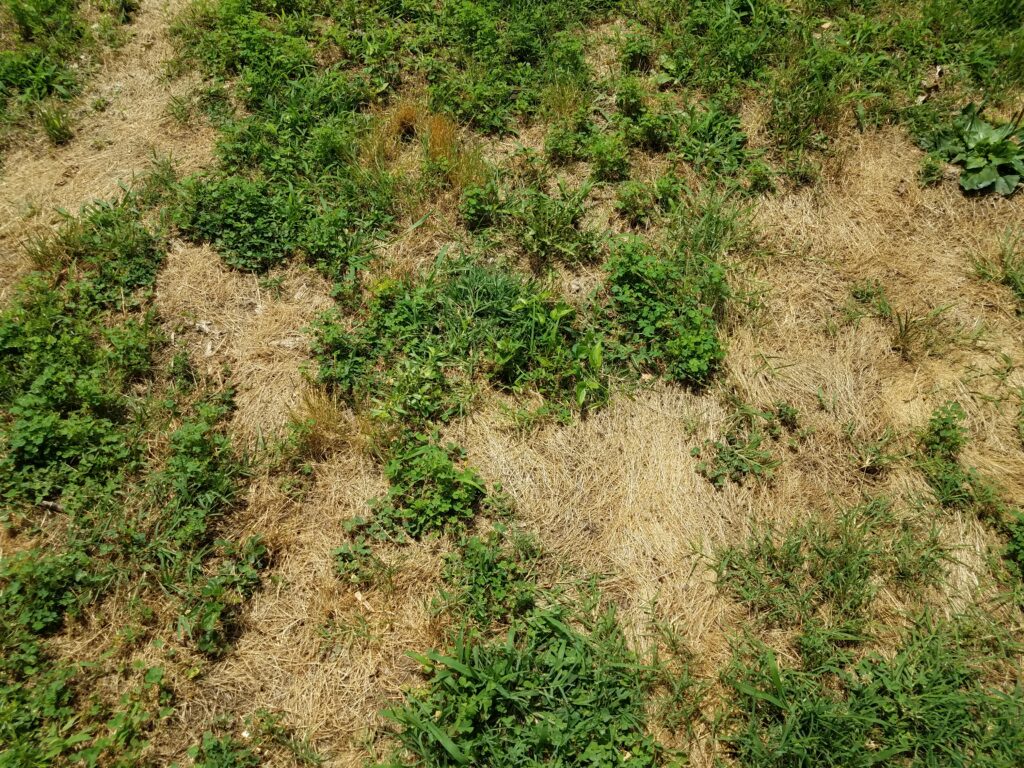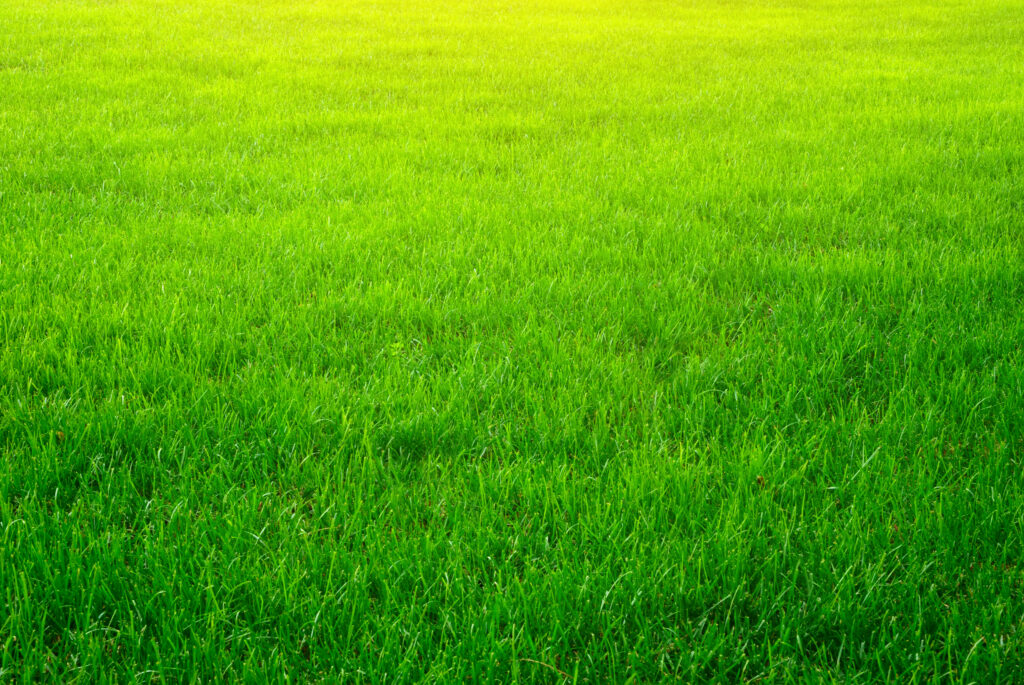Do you have brown spots ruining your otherwise beautiful property? It can be frustrating trying to figure out what’s causing the issue and what you can do in order to restore your lawn to its former glory. Here’s what you need to know about common causes of brown spots on your lawn and what you can do about them.
What Causes Brown Spots On Your Lawn?

Brown spots are most often caused by foliar diseases – aka, a type of disease that hurts the blades of your grass, but not the root system. However, disease is not the sole cause of brown spots on your lawn. Other potential causes include:
- Pet urine. If you’re annoyed by neighbors letting their dogs do their business on your lawn, there’s good reason for this beyond wanting common courtesy upheld. Urine has a high amount of nitrogen, which burns grass. Brown spots from pet urine are typically surrounded by darker green rings.
- Heavy foot traffic. This can damage your lawn, kill your grass, and lead to brown spots.
- Insects. Grubs can eat the roots of your grass, causing brown patches that widen as the damage worsens. If you have grubs, the brown patches will feel spongelike and be easy to rake up due to the damage to the roots.
Generally speaking, the healthier your lawn is, the less likely it is that you have to worry about brown spots.
About Brown Spot Disease
Brown spot disease, also known as Rhizoctonia solani, typically appears in the latter half of summer, when temperatures are at their hottest. We’re talking night-time temperatures over 68 degrees Fahrenheit and daytime temperatures in the 80s or higher. It affects cool-season grasses the most, but can also affect warm-season grasses.
This fungus can be in your soil for a while before it starts causing brown spots in your lawn. Rainy periods can prompt brown spot disease. It can also be caused by lack of air circulation, poor drainage, compacted soil, excessive thatch, and more. Watering your lawn too frequently increases its risk of developing brown spots. Brown spot disease can also be spread by foot traffic and clippings.

Can Grass Recover From Brown Spots?
Yes, fortunately, it can. If you’re struggling with brown spots on your lawn, this isn’t a permanent issue. While it will take time for your grass to recover, it’s very possible for it to do so. What’s needed in order to help your grass recover depends on the cause. Sometimes you just need to make some easy adjustments, but other times, lawn treatments are required.
What To Do About Brown Spots On Your Lawn
Depending on what caused the brown spots on your lawn, the steps you’ll need to take to resolve the problem vary.
- Brown spot disease. In some cases, improving environmental conditions can help with fungus, but in others, you may need fungicide. Brown spot disease typically doesn’t go away on its own, so it’s important to treat it if you have this issue.
- Pet urine. If asking your neighbor to make sure that their pet doesn’t urinate on your lawn isn’t working, you can also put up a fence around your lawn so that dogs can’t access it. You can also have your lawn aerated and reseeded or use a treatment specifically made for dog urine spots.
- Heavy foot traffic. If your brown spots are because those areas of your lawn are just popular, you can make a conscious effort to use other parts of your lawn to lessen the traffic each area receives. You can also work to ensure that you’re cleaning up after yourself whenever you go outside and aren’t leaving soccer balls or toys or what have you just laying out in your lawn.
- Grubs. If you have grubs eating your grass roots, you can treat them with insecticide in the spring and reseed the grass come fall.
Professional Help For Brown Spots On Your Lawn
Struggling with brown spots and can’t figure out what to do? Or perhaps you just don’t have the time to address the issue? Green Castle Lawn Care is here to help. We provide comprehensive lawn care services from insect control to fertilization to custom-built lawn care programs. A beautiful green lawn isn’t some far-fetched fantasy – it’s something our experts can help you achieve.
Contact us today to learn more about our lawn care services.
- How to Attract Pollinators to Your Yard: A Guide for Utah Residents - February 17, 2025
- Protecting Your Native Garden: How to Treat Weed Growth Without Damaging It - January 20, 2025
- How Early Snow Removal Preparation Can Save Your Business Money and Hassle - December 23, 2024


